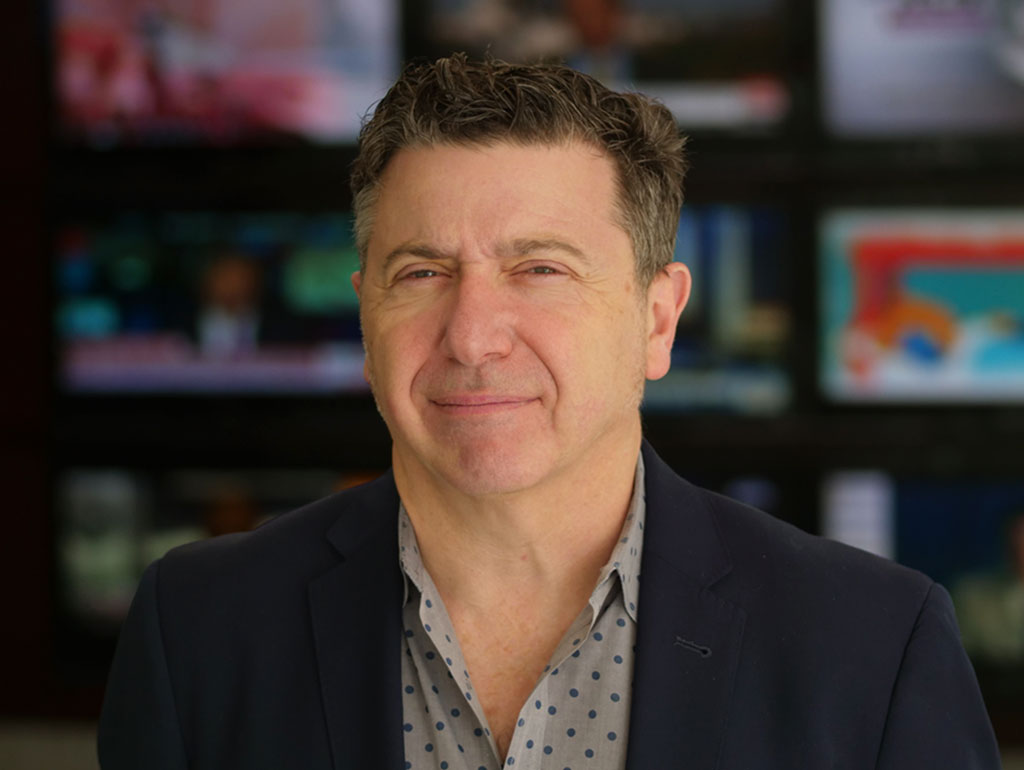Dear SMPA Community,
It is an honor to serve as SMPA Director and to have the opportunity to work with all of you. As I take on my new role, I wanted to tell you about myself and my vision for the School.
I am an immigrant who came to this country, like thousands of people do every year, attracted by the caliber and the opportunities of higher education in the United States. Born and raised in Argentina, I am the first person in my family to go to college. It was not obvious I was going to go to or finish college. I studied sociology at the Universidad de Buenos Aires during tough times for the country – a military dictatorship that committed human rights atrocities and launched a completely senseless war. At a time of state censorship and persecution, I found out I was deeply interested in free speech, free media, and critical consciousness (authoritarianism painfully reminds citizens about the importance of the core values of public life and not to take any human rights for granted). I finished college just as Argentina transitioned to democracy in 1983. Then, I worked as a teaching and research assistant, and on polling and market research (among other jobs). Along the way, I realized research, teaching, and writing were my passions, so I decided to apply to graduate school.
In 1987, I moved to the United States to start my Ph.D. in Sociology at the University of California, San Diego. My thesis was on the uses of “new media” in election campaigns in Latin America, which back then were slick negative ads, choreographed television events, and sophisticated polling (which were 1980s novelties like my love for synth-pop and trench coats). In grad school, I realized the incredible opportunities that U.S. universities offer to do what I love and decided to stay in this country.
My vision for SMPA is grounded in the reasons why I became a scholar/professor of communication and media studies.
I believe that journalism/media and political communication are uniquely positioned to help societies understand and shape the way we think and make decisions about key public matters – from education to the environment. Both fields offer unique insights into how societies define and confront social problems, as well as recognize and address social differences and inequalities. Both are fields of scholarly inquiry and practice that bring opportunities for dialogue and collaboration among researchers, journalists, media/digital strategists, advocacy experts, speechwriters, data analysts, filmmakers, and many others.
I believe our School should continue to provide superb training in a range of skills, including critical analysis, reporting, multi-platform storytelling, media production, research methodology, communication, and advocacy. We should continue to support students as they build work portfolios, gain experience through internships and jobs, develop professional networks, and make extraordinary achievements.
I believe in critical learning – the combination of expression, listening, tolerance, empathy, open-mindedness, and dialogue.
I believe that universities need to lead the way in how societies deal with deep-seated, multifaceted problems of social exclusion, intolerance, and hate. We need to foster diversity and inclusion in everything we do.
These will remain central priorities during my tenure as SMPA Director.
I would also like to address the huge impact of the COVID-19 pandemic on our university and our lives. The pandemic presents us with unprecedented challenges that we are beginning to understand as we work towards figuring out effective solutions. SMPA will work closely with the university and follow GW guidelines in the months ahead. Because COVID-19 has upended virtually everything, we need to be thoughtful, flexible, innovative, and smart to make key decisions, as the pandemic evolves in unpredictable ways. Not everyone has been similarly affected in terms of jobs, health, and family life. Pandemics expose and exacerbate longstanding social problems and inequalities. We need to be kind, compassionate, and generous to address the uneven impact of the pandemic on our communities.
Lastly, I want to share some important thank-yous. Let me start with a big shout out to Frank Sesno for his 11-year leadership as Director. Through his vision, tireless work, and dedication, he has successfully led the School by strengthening our core areas of expertise and building new opportunities for students to learn and work. I hope to build off his remarkable legacy.
A thank-you to my colleagues on the faculty for their confidence and support. It is a privilege to work in a place with top-notch scholars and teachers, who deeply care about education, facts, storytelling, creativity, and reasoned argumentation.
I am grateful to the fabulous staff for their indefatigable work and support, especially in these unusual and hard times.
Finally, thanks to the students for making SMPA a truly enriching, exciting place to learn and work. Everything we do in the School is to ensure that students have an excellent college experience as they become expert communicators, talented creators, and critical and global citizens.
I am committed to ensuring that SMPA remains a world-class, vibrant community for learning, research, and practice. I strongly believe in having open lines of communication, so everyone has opportunities to speak and to be heard. I welcome your ideas, questions, and suggestions. You can contact me at waisbord![]() gwu [dot] edu.
gwu [dot] edu.
Sincerely,
Silvio Waisbord
Director, School of Media and Public Affairs


